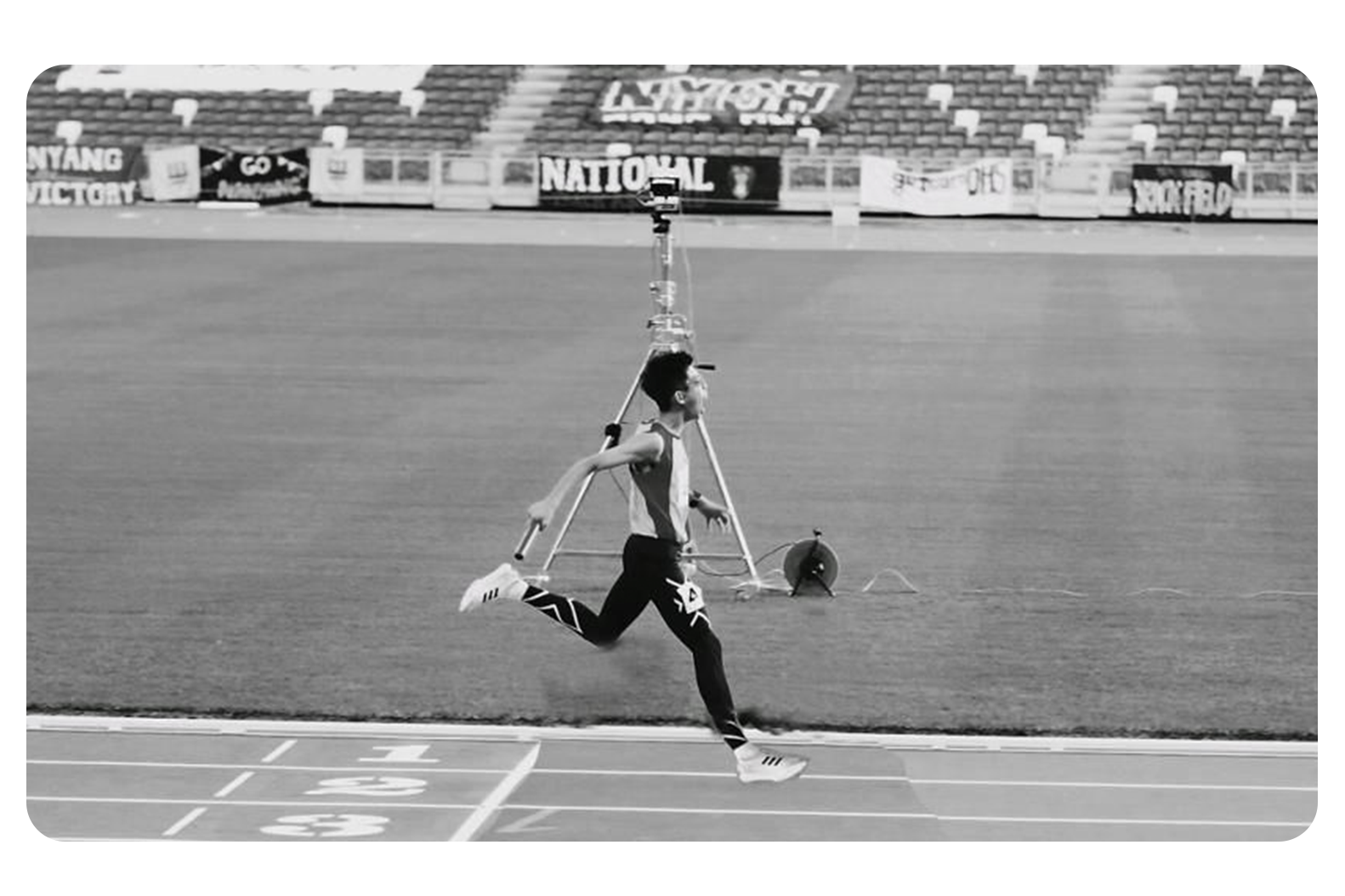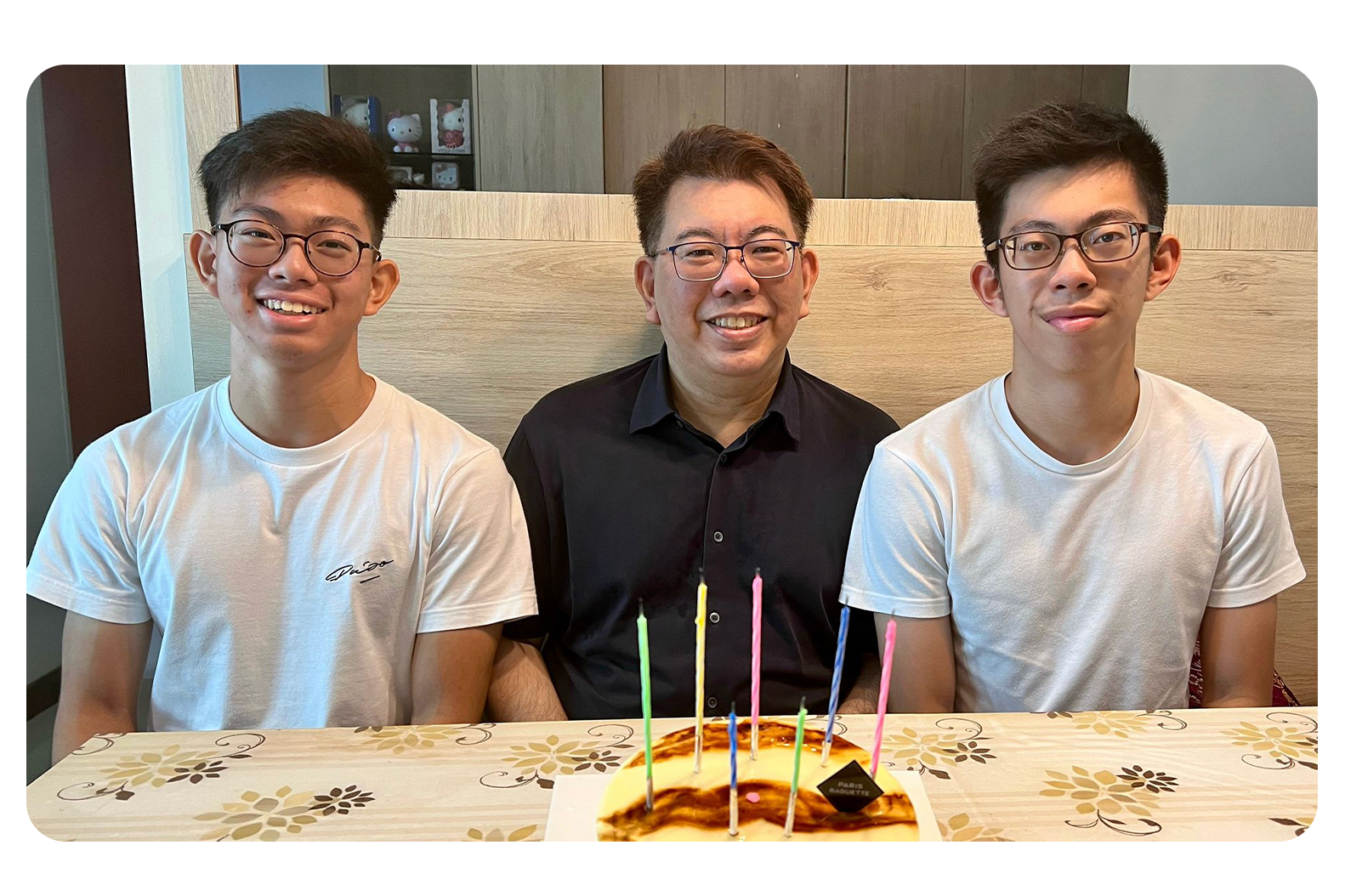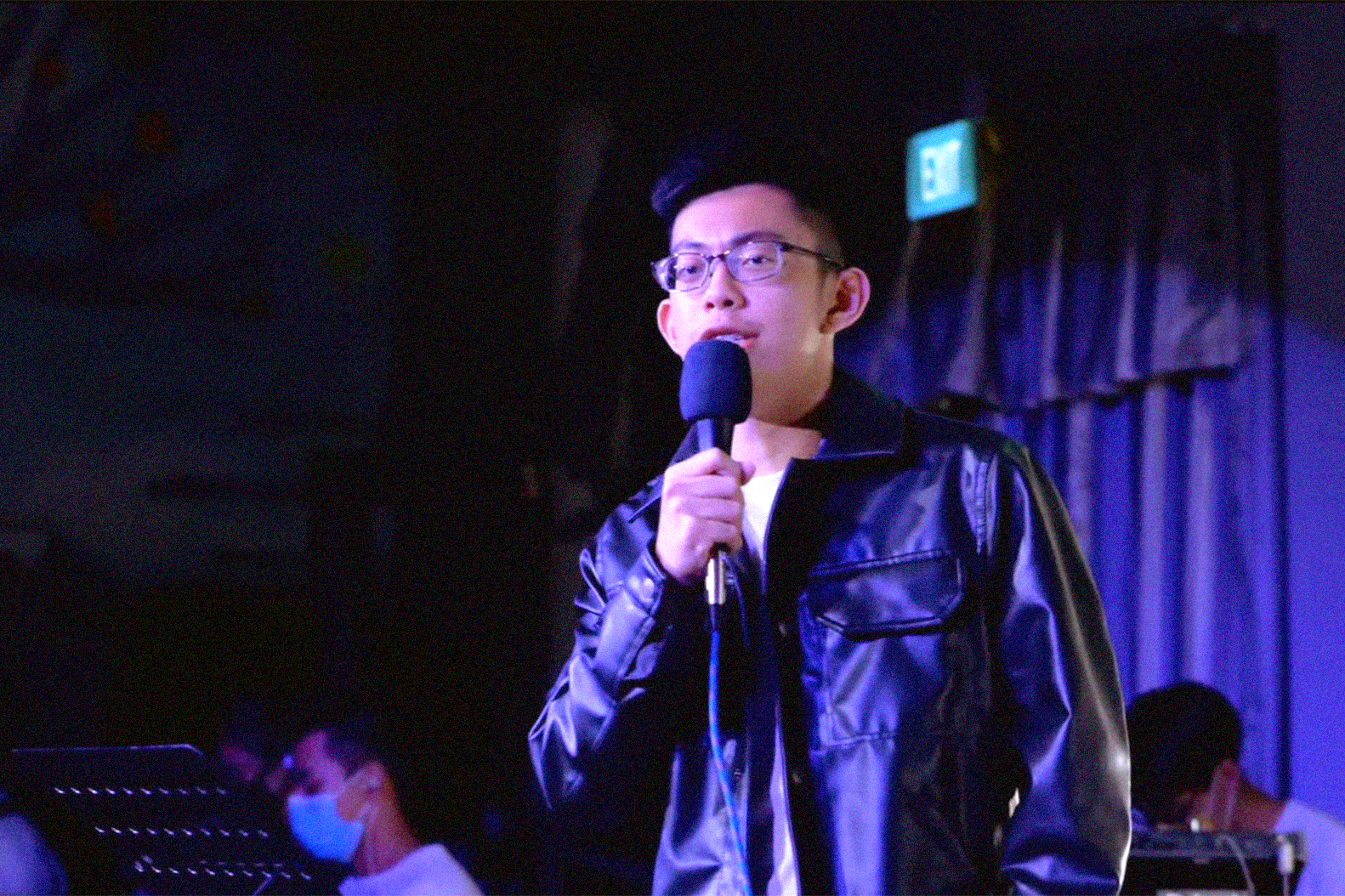Who am I?
Son of a pastor. Student at a prestigious institution. Track and field sprinter with multiple medals.
This is how I would love to define myself. These parts of me bring such joy and pride at the accomplishments I’ve garnered over my 18 years of living.
But I know, deep down, there’s more to who I am.
Before I stepped into secondary school life, I had a meeting with my therapist, who I’ve been seeing consistently since Primary 2.
Along with my mum, she explained to me that I had this condition called autism. She explained many things to me about the autism spectrum, and how it affected my life.
Not gonna lie, I had already foreseen this: When I was 4, I was enrolled, not in a kindergarten, but in the Autism Resource Centre (Singapore).
When I turned 7, I studied in Pathlight School, a school specially designed for youths on the spectrum.
I probably would have continued studying there if it weren’t for my parents, who enrolled me in a mainstream school the following year.
Only this time, I was studying P1 again, and hence for the past decade I’ve been a year older than my peers.
It was always a bit awkward when my friends asked me why I was a year older. I simply replied that it’s because “I started kindergarten late”.
Nevertheless, I didn’t really care much about my autism diagnosis, nor did I think I was especially different from the people around me, though my parents had been sending me to therapist after therapist ever since I could walk.
Everything about my life seemed fine: I topped my classes, achieved decent results in my sprinting career, and had many great friends.
Even when I told my close friends and my cell group about being autistic, they had positive reactions and continued to support me.

However, things began to change in September 2019.
Suddenly, it was like I fully realised and grasped what it meant to be autistic, especially regarding my social interactions.
It’s well known that autistic individuals face challenges with social skills, repetitive behaviours and nonverbal communication, among others.
For me, I hadn’t really cared about how my behaviour would affect how my peers would think of me.
So, to fully realise that I’m not only different, but had exhibited abnormal and strange behaviour in social settings that would have led others to regard me negatively… I felt an overwhelming wave of condemnation.
My insecurities about myself increased. I craved approval from my peers. I was desperate to be liked and seen.
There was a void in my heart that had to be filled because of the shame I had over my autism.
I even tried to pray the autism away. I really believed that somehow, in some way, God would do a miracle…
But things only got worse. I had a certain image about myself that I wanted to uphold, and I was a perfectionist at that.
Being autistic undermined such an image that was low-key ableist as I wanted to be “normal”.
Over the next one and a half years, not only did I backslide, I also felt like I was living a double life.
I projected an air of piety, serving in my dad’s church, attending cell meetings and even leading a prayer group in my school.
Outside of that however, I was living in various sins to cope with my insecurities. I never really read my Bible, and I was definitely not reflecting Christ in the rest of my daily life.
In my social circles, even when I hung out with my friends, I never really felt at ease as I was constantly worried about how I would be perceived.
I never really felt at ease as I was constantly worried about how I would be perceived.
In fact, my social circle increased exponentially in 2020, but that still didn’t give me the security I needed.
At least I learnt more about autism that year, and I felt the courage to come out about my autism publicly on social media.
My friends helped to share my post, but even the barrage of supportive and encouraging comments couldn’t fully soothe me.

For some reason, the insecurities remained.
While I was in a better place mentally in 2021, I didn’t really enjoy life.
It felt like I was trudging through life, trying my best to survive, let alone thrive. There were moments where I felt especially down, and I even wondered: If I was gone, would people remember me as significant?
As far as I was concerned, being an autistic person in a neurotypical, ableist society was a death sentence to a bright and prosperous future. Autism felt like a curse.
But God was preparing a miracle.
In July 2021, I had a meeting with a senior at my school. He was leading a prayer group in the College section, while I led one in my Sec 4 batch.
I poured out my heart and shared with him the struggles and insecurities I had felt over the past many months.
After I had finished sharing, my senior said: “Samuel, I’ve been hearing you share with me about how sorry you feel about yourself for the past 20 minutes.
“But I want you to know that God has already forgiven you of everything you may have done, so forgive yourself!”
God has already forgiven you of everything you may have done, so forgive yourself!
While this was a message that I’ve heard many times before, there was something different here.
My senior encouraged me that I was already born again and a new creation in Christ, and offered to pray for me.
As he prayed, my senior declared that I would experience a turnaround in my life, and emphasised again that I was born again in Christ.
Nothing much happened over the next three months.
But in October, I felt the Lord nudging me to share with my school-based prayer group about the crux of the Gospel and about being made right with God through the sacrifice of Jesus.
I couldn’t pinpoint exactly when, but as I reread the scriptures and shared with my group about being made the righteousness of God in Christ, my insecurities about myself started to lift and was replaced with peace and joy about who I am in Jesus!
All the depressive thoughts I had towards life slowly went away, and for the first time in over two years I was looking forward to living.
It was like I had a fresh revelation about the Gospel and what Jesus had done for me.

It didn’t matter whether I was autistic or not, the reality was in and of myself, I am a sinner.
But Jesus, out of His mercy and great love, came down from heaven to die on the cross for my sins, so that as a believer in Jesus and a child of God, I can receive everlasting life.
A life that’s filled with the goodness of Jesus. A life that includes a future and a hope. A life where God is able to do exceedingly, abundantly, above all that I could imagine.
God showed me how autism wasn’t a curse, but a gift, a blessing, something which He can use and has used for His glory.
Moreover, God showed me how autism wasn’t a curse, but a gift, a blessing, something which He can use and has used for His glory.
I realised much of my own strengths were all thanks to autism. These include being extremely detailed and methodical in my work, to having a strong sense of justice.
Most significantly, I’m blessed with an extraordinarily good memory of the things I’m deeply passionate about.
This has accomplished wonders with regards to sharing my Christian faith, as I’m able to memorise Bible stories and portions of Scripture related to different concepts within Christianity, thus enabling me to aptly offer biblical encouragement to my Christian peers in school, even within the prayer group.
Even now, it’s unbelievable that I’m able to memorise so much about God’s Word, though my daily Bible reading rate isn’t exactly ideal.
Obviously, autism does bring along certain weaknesses.
Unfortunately, such weaknesses are amplified in societies that are ableist, resulting in autism being regarded as a disability and something to be stigmatised.
However, I believe society must be educated on the nuances of autism, of how it can also be a superpower, in order to foster greater understanding of autistic individuals.
For the Church, autistic individuals can be such an invaluable part of the Christian community, as they can maximise their talents and hone their strengths to serve God and His people.
After all, if autism can truly bring about diverse strengths, shouldn’t we as Christians, who’re called to love our neighbour, rejoice with the truth?
The weaknesses I have as a result of my autism only make me human, like anybody else living on this planet.
It makes me a human who needs to depend on the grace of God, a grace that emphatically declares by the power of Jesus: “When I am weak, then I am strong.”
Living with autism has truly been a journey of highs and lows, culminating in Jesus being lifted high and His grace glorified.
I admit that I still struggle with sin, but who doesn’t? No matter who we are or where we come from, we all need the grace of God for our lives — His unmerited, undeserved favour.
Such favour that is freely given and freely received, enabling us to reign over sin and overcome the struggles that we may face.
For me, being autistic has taught me to fully put my trust in Jesus and yield to Him, instead of merely depending on my own strength and efforts to succeed.
Indeed, ‘tis so sweet to trust in Jesus!
He may not have promised a “bed of roses” kind of life, but He lovingly promised that He would never leave us nor forsake us.
If you’re reading this and perhaps you yourself are (or are suspecting you are) on the spectrum, please don’t be ashamed of yourself.
Own your autism, knowing that God has allowed it for a mighty purpose.
Even if your autism has caused you much pain and heartbreak, I pray that God will reveal to you the unique giftings you have, just as He did for me, and that He’ll turn your mourning into dancing.
You are fearfully and wonderfully made!
If you’re a parent of a child on the spectrum, or you simply have a loved one with special needs, I want you to know that God sees your struggle in trying to relate and foster a strong bond with them.
You are fully known by God, and God has already prepared the things you need in your relationship with that particular autistic individual.
You may be burdened with many demands, but God’s supply is always greater than your demands.
The treasures of heaven are rich with infinite resources, so continue to pray and ask God for what you need!
The same God who has done a miracle in my life, is the same God who will do a miracle in your loved one’s life! Don’t give up!
For far too long, the world has championed autism awareness. Now, it’s time to champion autism acceptance.
I pray that as God leads, the Church will be at the forefront of this mission, to seek out the lost sheep and bring them home into the loving embrace of our Heavenly Father.
Who am I? I am an autistic child of God.
I am highly favoured, greatly blessed and deeply loved.
I am the righteousness of God in Christ!
- Meditate on Psalm 139.
- Reflect on your life journey thus far.
- What is God saying to you?









